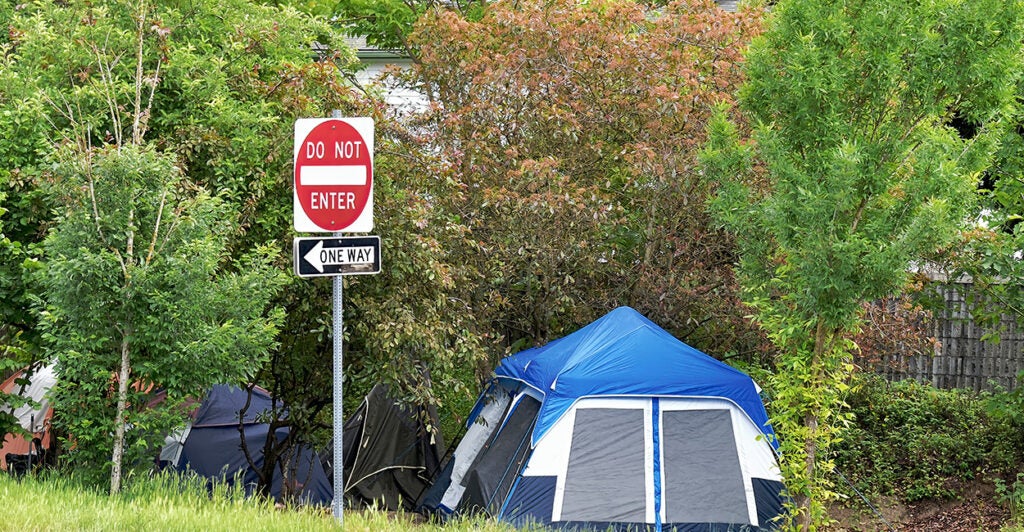The Supreme Court sided with a small Oregon city’s crackdown on homeless people sleeping in public in its ruling Friday in the case of City of Grants Pass, Oregon v. Johnson.
Justice Sonia Sotomayor, who dissented along with Justices Elena Kagan and Ketanji Brown Jackson, wrote, “Sleep is a biological necessity, not a crime. For some people, sleeping outside is their only option.”
Justice Neil Gorsuch, writing for the majority, wrote, “The Constitution’s Eighth Amendment serves many important functions, but it does not authorize federal judges to wrest those rights and responsibilities from the American people and in their place dictate this Nation’s homelessness policy.”
The decision was 6-3.
The Supreme Court ruled on the constitutionality of ordinances in Grants Pass, a city in southwest Oregon with a population of about 40,000, that fines homeless people for using blankets, pillows, or cardboard boxes while sleeping in public within city limits.
Grants Pass residents who have been homeless, including Gloria Johnson, sued the city in this case.
Grants Pass maintained the ordinances bar camping on public property by everyone, while the counsel of the defendant argued the laws make homelessness a crime, violating the “cruel and unusual punishment” ban in the Eighth Amendment of the Constitution.
Grants Pass Municipal Code includes an “anti-sleeping” ordinance, two “anti-camping” ordinances, a “park exclusion” ordinance, and a “park exclusion appeals” ordinance.
In oral arguments in the case on April 22, the court appeared to side with the city.
Justice Neil Gorsuch said drawing the line between someone’s legally punishable conduct and their status is difficult.
“How about if there are no public bathroom facilities?” Gorsuch asked. “Do people have an Eighth Amendment right to defecate and urinate? Is that conduct or is that status?”
The court declined to hear a similar case concerning homelessness in Boise, Idaho, in 2019, but homelessness has since increased.
More than 250,000 people live in parks, on streets, and in their vehicles in the U.S., according to an annual federal count, NPR reported.
In both the Oregon and Idaho cases, the lower courts decided it’s cruel and unusual to fine or jail someone for sleeping on public land if adequate shelter isn’t available. Grants Pass and other Western cities say those rulings make it hard to keep their public spaces open and safe for all residents.
But Justice Sonia Sotomayor contended it is wrong to arrest homeless people for sleeping in public.
“You don’t arrest babies who have blankets over them,” Sotomayor said in oral arguments. “You don’t arrest people who are sleeping on the beach.”
Gov. Gavin Newsom, the Democratic governor of California, said in a statement posted to X, “Today’s Supreme Court ruling in Grants Pass provides state and local officials the definitive authority to implement and enforce policies to clear unsafe homeless encampments and helps us deliver common-sense measures to protect the safety and well-being of our communities.”
This is a breaking news story and may be updated.
